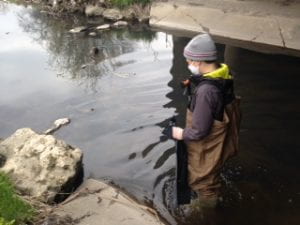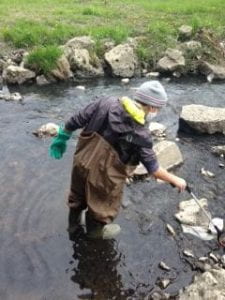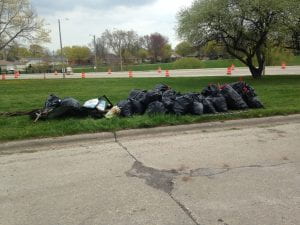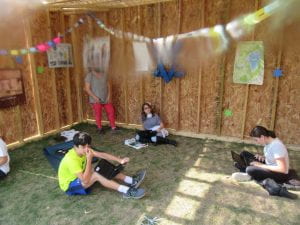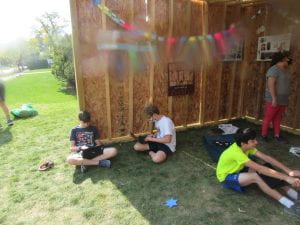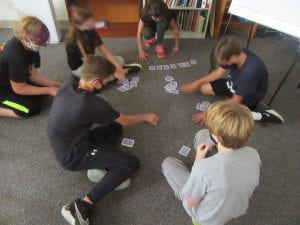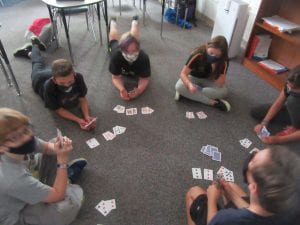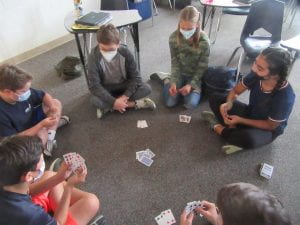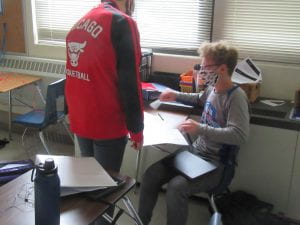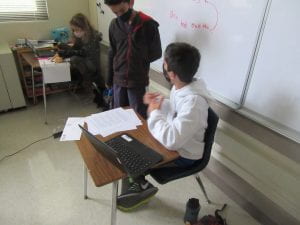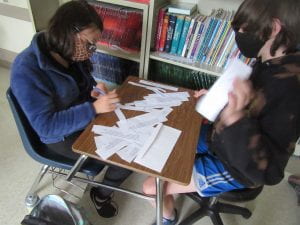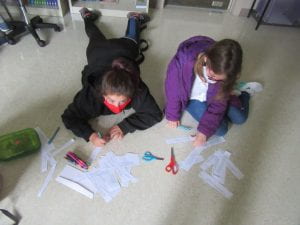This past Saturday, the Milwaukee River Keepers hosted their annual River Clean Up and I was in charge of a particular clean-up site (Lincoln Creek Parkway on 60th and Hampton). We had 13 volunteers show up to our particular site; helping to collect over 40 trash bags during the three hour window (special shoutout to the MJDS’er who donned my waders to get the trash out of the river). Some highlights of stuff we found: a nice scooter, an old-style tube TV, and a very heavy worn-out mattress.
It was great to see people outdoors and do their part to make our environment a bit cleaner and a better place.

